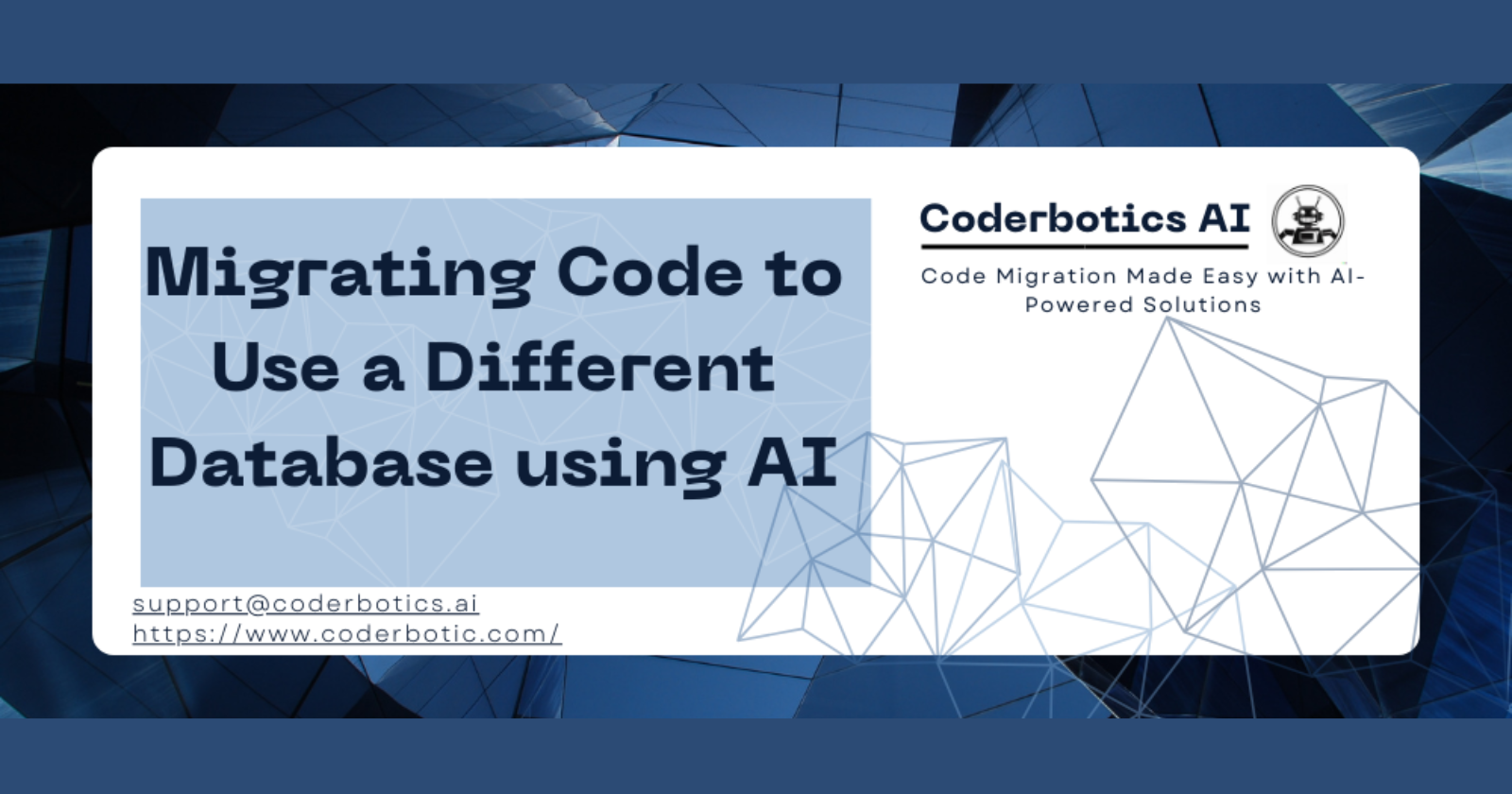Migrating Code to Use a Different Database using AI
 Kaushal Powar
Kaushal Powar
Introduction
In today's fast-paced software development landscape, databases are a crucial component of any application. As your application grows and evolves, it's not uncommon to find yourself needing to switch to a different database to better meet your needs. This process, known as database migration, can be complex and time-consuming if not done properly. In this blog, we'll explore the benefits and challenges of migrating code to use a different database using AI.
Benefits of AI-Powered Database Migration
Improved Accuracy: AI-powered tools can analyze code and identify potential issues and errors more accurately than human developers, reducing the likelihood of errors and improving code quality.
Increased Efficiency: AI-powered tools can automate repetitive tasks, freeing up human developers to focus on higher-level tasks and improving overall efficiency.
Enhanced Collaboration: AI-powered tools can facilitate collaboration between developers by providing real-time feedback and suggestions, improving communication and reducing misunderstandings.
Cost-Effective: AI-powered tools can reduce costs by automating tasks and improving code quality, reducing the need for manual testing and debugging.
Challenges of AI-Powered Database Migration
Complexity: AI-powered tools may struggle with complex code structures and logic, requiring manual intervention.
Customization: AI-powered tools may not always generate tests that meet specific requirements or testing frameworks.
Integration: AI-powered tools may require integration with existing systems and tools, which can be time-consuming and challenging.
Technical Implementation
Code Analysis: AI-powered tools use various techniques to analyze code, including static analysis, dynamic analysis, and code metrics analysis.
Machine Learning: AI-powered tools use machine learning algorithms to identify patterns and relationships in code, allowing them to provide more accurate and relevant feedback.
Natural Language Processing: AI-powered tools use natural language processing to analyze and understand code comments and documentation, providing more accurate and relevant feedback.
Integration with Version Control Systems: AI-powered tools integrate with version control systems such as Git to track changes and provide feedback on each commit.
AI-Powered Database Migration Tools
Database Migration Tool: This tool uses AI to analyze code and identify potential issues and errors, providing real-time feedback and suggestions for improvement.
Code Refactoring Tool: This tool uses AI to refactor code, improving code quality and reducing complexity.
Test Generation Tool: This tool uses AI to generate tests, ensuring that the code is thoroughly tested and validated.
Conclusion
Migrating code to use a different database using AI can be a complex and challenging process, but it also offers numerous benefits, including improved accuracy, increased efficiency, enhanced collaboration, and cost-effectiveness. By leveraging AI-powered tools, developers can streamline the database migration process, improve code quality, and enhance collaboration.
Join the waitlist here to get notified.
Visit our site - https://www.coderbotic.com/
Subscribe to my newsletter
Read articles from Kaushal Powar directly inside your inbox. Subscribe to the newsletter, and don't miss out.
Written by

Kaushal Powar
Kaushal Powar
Romanticizing everything 😉 Large Language Models | NLP